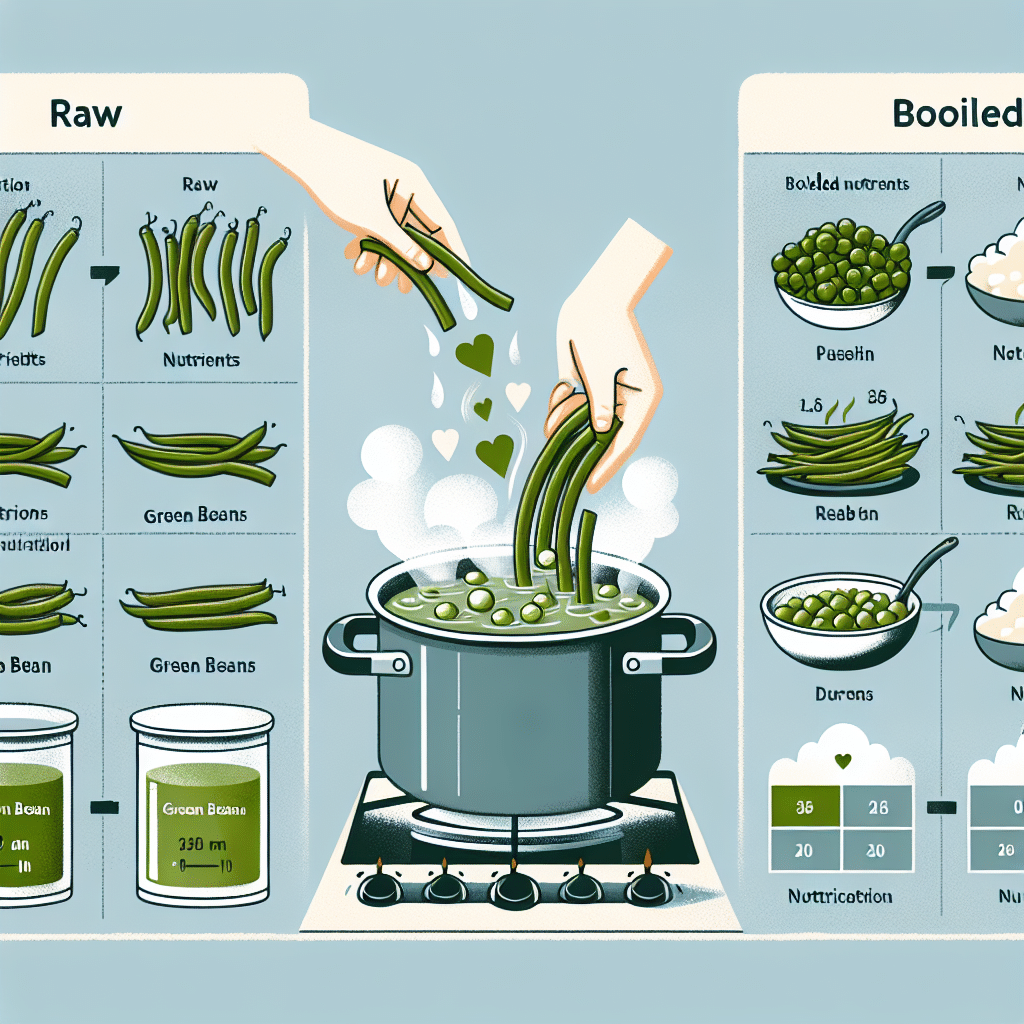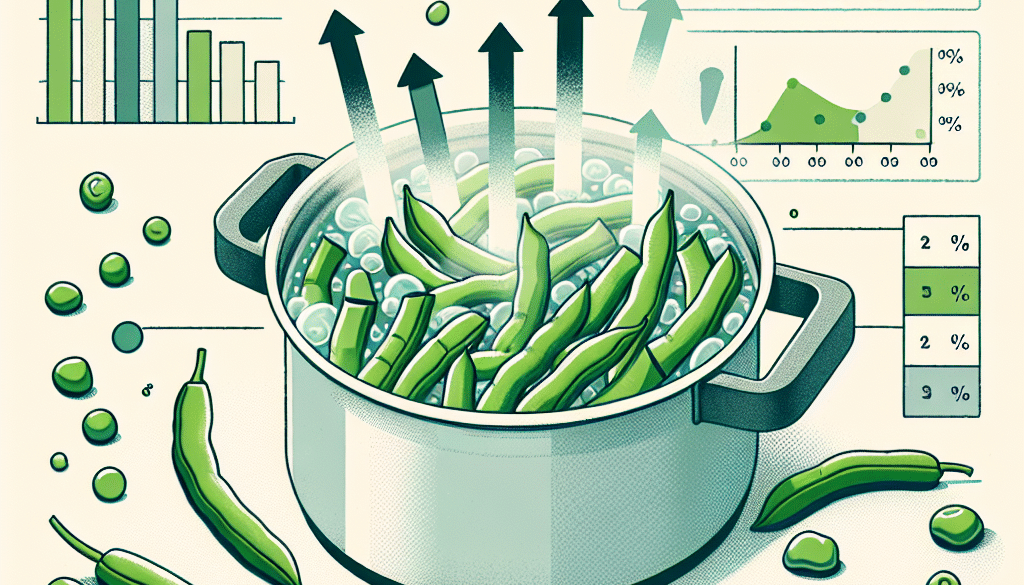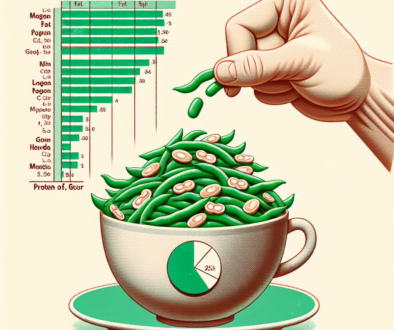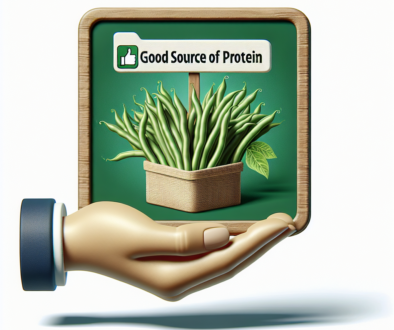Does Boiling Green Beans Remove Nutrients?
-
Table of Contents
- Boiling Green Beans: Does It Remove Nutrients?
- The Nutritional Profile of Green Beans
- Understanding the Boiling Process
- Does Boiling Green Beans Remove Nutrients?
- Minimizing Nutrient Loss When Boiling Green Beans
- Alternative Cooking Methods
- Case Studies and Statistics
- Conclusion: Balancing Cooking and Nutrition
- Discover ETprotein’s High-Quality Protein Products
Boiling Green Beans: Does It Remove Nutrients?

Green beans, also known as string beans, are a popular vegetable enjoyed by many for their flavor and nutritional benefits. They are a staple in various cuisines and can be prepared in numerous ways. However, one common question that arises is whether boiling green beans leads to a significant loss of nutrients. This article delves into the impact of boiling on the nutritional value of green beans and offers insights into the best practices for preserving their health benefits.
The Nutritional Profile of Green Beans
Before we examine the effects of boiling, it’s important to understand the nutritional makeup of green beans. These vegetables are low in calories and high in vitamins and minerals. Here’s a brief overview of their key nutrients:
- Vitamin C: Essential for the growth and repair of tissues.
- Vitamin K: Crucial for blood clotting and bone health.
- Folate: Important for cell division and DNA synthesis.
- Fiber: Aids in digestion and promotes a feeling of fullness.
- Antioxidants: Compounds such as flavonoids and carotenoids that help combat oxidative stress.
Understanding the Boiling Process
Boiling is a cooking method that involves immersing food in water at a high temperature. While it is a simple and common way to prepare vegetables, it can also lead to nutrient loss. The extent of this loss depends on several factors, including the duration of cooking, the temperature of the water, and the solubility of the nutrients in water.
Does Boiling Green Beans Remove Nutrients?
Research has shown that water-soluble vitamins, such as vitamin C and some B vitamins, are particularly susceptible to loss during boiling. Since these vitamins dissolve in water, they can leach out of the vegetables and into the cooking liquid. The longer the boiling time, the greater the nutrient loss.
Minerals, on the other hand, tend to be more stable during cooking. However, they can still be lost to some extent, especially if the cooking water is discarded. Fiber and antioxidants are also affected by boiling, but to a lesser degree compared to water-soluble vitamins.
Minimizing Nutrient Loss When Boiling Green Beans
To retain the maximum nutritional value of green beans when boiling, consider the following tips:
- Use minimal water: Less water means fewer nutrients are lost to the cooking liquid.
- Keep the cooking time short: Cook green beans until they are tender but still crisp to minimize exposure to heat.
- Don’t overcook: Overcooking not only depletes nutrients but also diminishes flavor and texture.
- Save the cooking water: If possible, use the nutrient-rich water in soups or sauces to recapture some of the lost vitamins and minerals.
Alternative Cooking Methods
While boiling is a common method, there are alternative ways to cook green beans that can help preserve their nutrient content:
- Steaming: This method cooks the vegetables without submerging them in water, reducing nutrient loss.
- Sautéing: Quick cooking at high heat can help retain more vitamins and minerals.
- Blanching: A brief boil followed by an ice bath can preserve color and nutrients while making the beans crisp.
- Microwaving: Cooking green beans in the microwave with a bit of water can minimize nutrient loss.
Case Studies and Statistics
Several studies have investigated the effects of cooking on the nutrient content of vegetables. For instance, a study published in the “Journal of Food Science” found that boiling can lead to significant losses of water-soluble vitamins. Another study in the “Journal of Agricultural and Food Chemistry” reported that steaming and microwaving vegetables preserved antioxidants better than boiling.
Statistics from these studies indicate that boiling can reduce the vitamin C content in vegetables by up to 50% or more, depending on the cooking time. However, it’s worth noting that even with some nutrient loss, boiled green beans still contribute valuable vitamins and minerals to the diet.
Conclusion: Balancing Cooking and Nutrition
In conclusion, while boiling green beans can lead to the loss of some nutrients, it does not strip them of all their nutritional value. By employing cooking methods that minimize nutrient loss and being mindful of cooking times and techniques, you can enjoy green beans that are both delicious and nutritious. Remember that a varied diet is key to obtaining a full spectrum of nutrients, so incorporating green beans in different ways can help you reap their health benefits.
Discover ETprotein’s High-Quality Protein Products
If you’re looking to complement your diet with additional protein sources, consider exploring ETprotein’s range of organic bulk vegan proteins. Their products, including various seed and bean proteins, offer a plant-based protein boost without compromising on taste or quality. ETprotein’s offerings are ideal for those seeking non-GMO, allergen-free protein options with high purity levels.
Whether you’re involved in the nutraceutical, pharmaceutical, or food and beverage industries, ETprotein can provide tailored protein solutions to meet your needs. Their commitment to excellence has made them a trusted supplier for leading global brands and Fortune 500 companies.
For more information or to sample their products, reach out to ETprotein and discover how their protein and L-(+)-Ergothioneine products can enhance your offerings.
About ETprotein:
ETprotein, a reputable protein and L-(+)-Ergothioneine (EGT) Chinese factory manufacturer and supplier, is renowned for producing, stocking, exporting, and delivering the highest quality organic bulk vegan proteins and L-(+)-Ergothioneine. They include Organic rice protein, clear rice protein, pea protein, clear pea protein, watermelon seed protein, pumpkin seed protein, sunflower seed protein, mung bean protein, peanut protein, and L-(+)-Ergothioneine EGT Pharmaceutical grade, L-(+)-Ergothioneine EGT food grade, L-(+)-Ergothioneine EGT cosmetic grade, L-(+)-Ergothioneine EGT reference grade and L-(+)-Ergothioneine EGT standard. Their offerings, characterized by a neutral taste, non-GMO, allergen-free attributes, with L-(+)-Ergothioneine purity over 98%, 99%, cater to a diverse range of industries. They serve nutraceutical, pharmaceutical, cosmeceutical, veterinary, as well as food and beverage finished product distributors, traders, and manufacturers across Europe, USA, Canada, Australia, Thailand, Japan, Korea, Brazil, and Chile, among others.
ETprotein specialization includes exporting and delivering tailor-made protein powder and finished nutritional supplements. Their extensive product range covers sectors like Food and Beverage, Sports Nutrition, Weight Management, Dietary Supplements, Health and Wellness Products, and Infant Formula, ensuring comprehensive solutions to meet all your protein needs.
As a trusted company by leading global food and beverage brands and Fortune 500 companies, ETprotein reinforces China’s reputation in the global arena. For more information or to sample their products, please contact them and email sales(at)ETprotein.com today.












